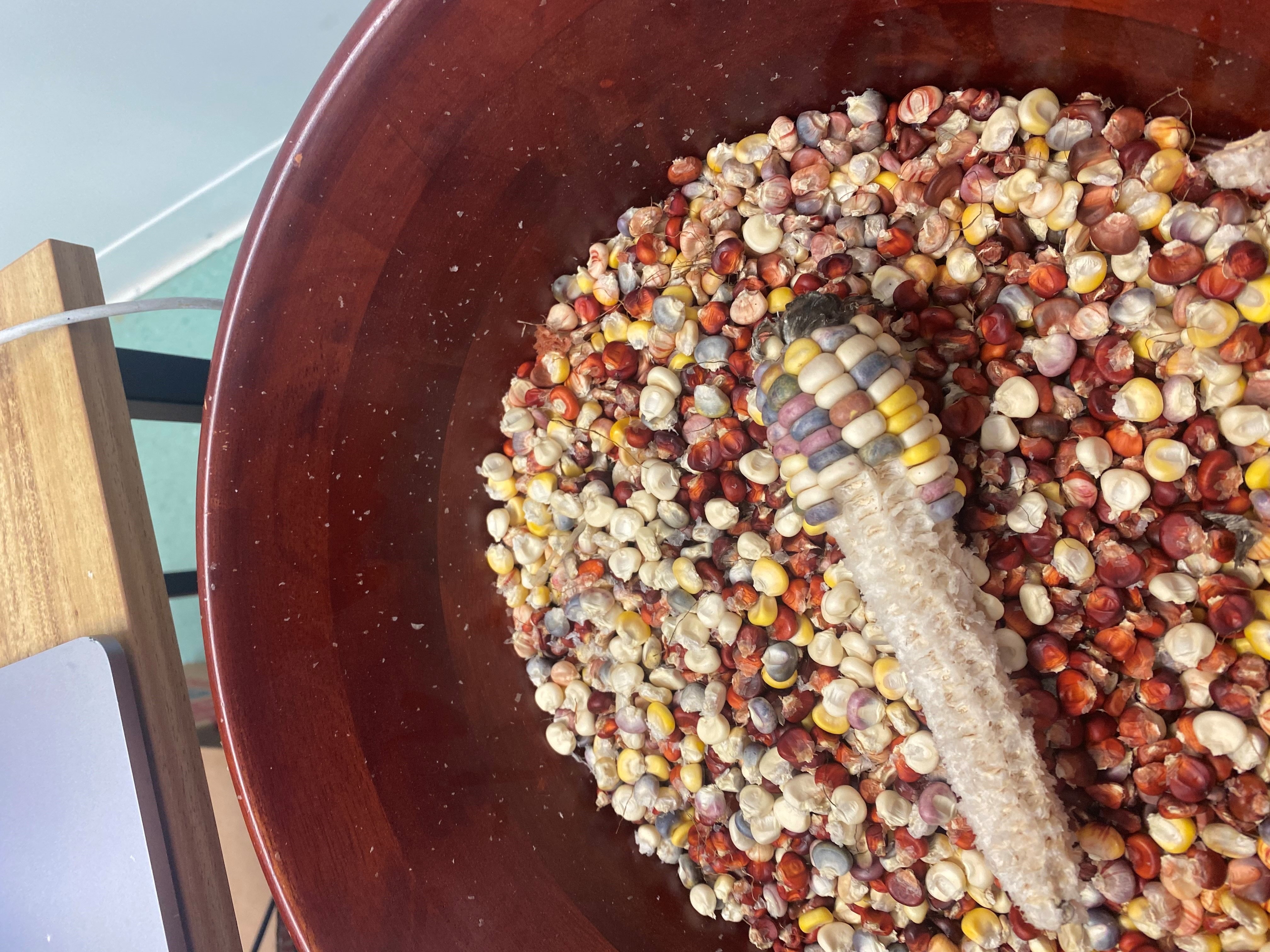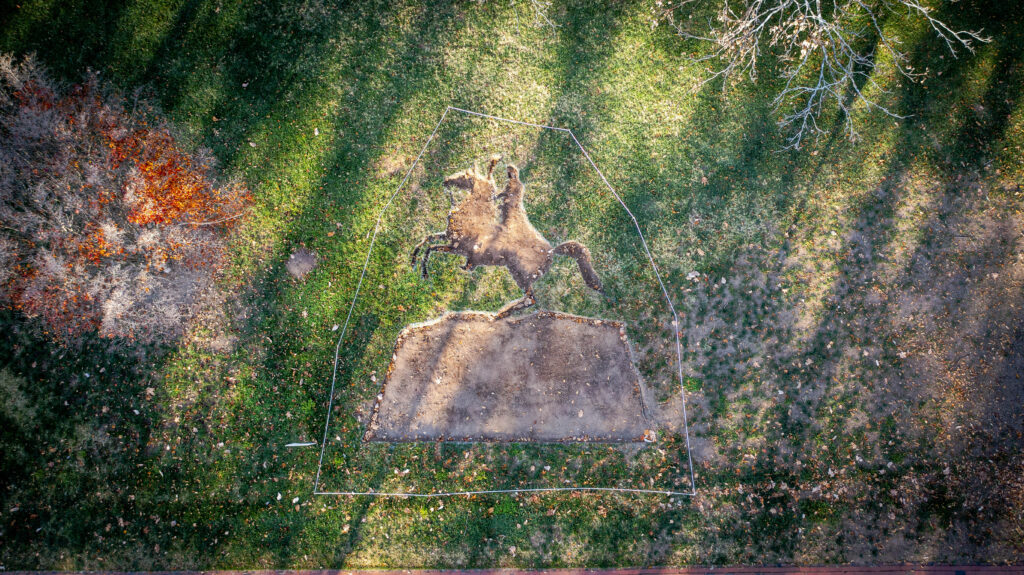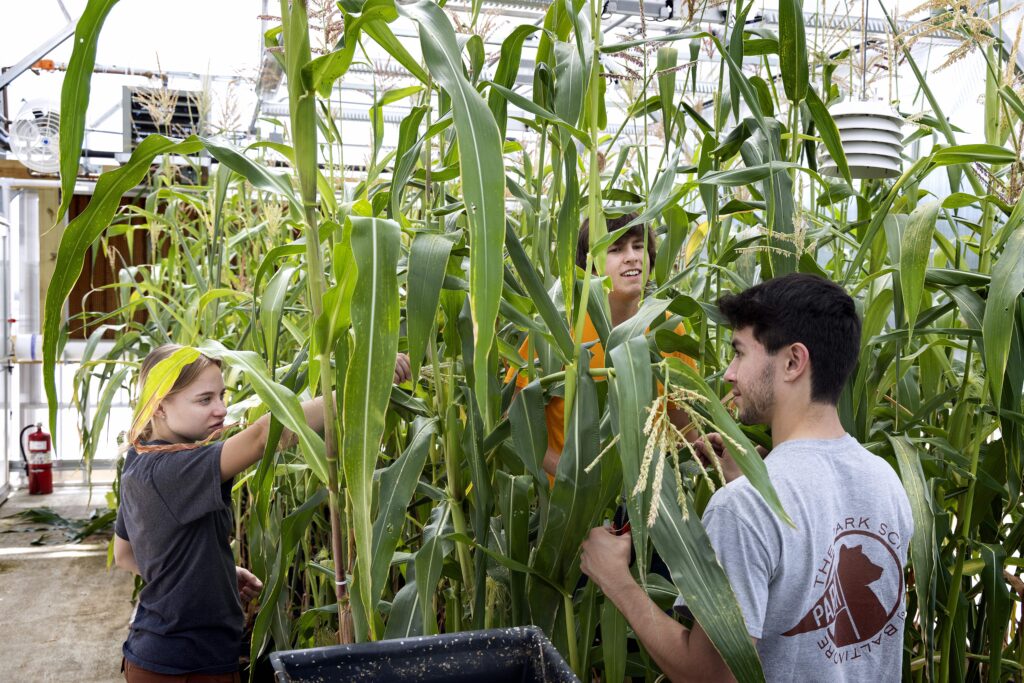Davidson College & Catawba Nation Collaboration

Dútα Bαhiisere Kus Ráˀhere (We Know Corn Together)
About The Project
Dútα Bαhiisere Kus Ráˀhere is a collaborative project that nurtures a reciprocal and generative relationship between Davidson College and the Catawba Nation. Dútα Bαhiisere Kus Ráˀhere means “We Know Corn Together” in the Catawba language and is pronounced dO-tuh buh-hee-ee-say-ray koos rAhk-hay-ray.
At Davidson College, we want to provide opportunities for our students and the wider community to understand the complicated outcomes of settler colonialism and engage respectfully and ethically in the process and practice of decolonization. We seek to be a model of how liberal arts colleges can build meaningful relationships with Native nations, particularly those who are the ancestral owners of the lands on which our institutions exist.
How it Started
“To grow something indigenous inside of that space, for me, was a form of sharing and showing our continual resilience in our communities.” (Nicholas Galanin)
Dútα Bαhiisere Kus Ráˀhere began with an ephemeral outdoor sculptural project conceived by Nicholas Galanin (Tlingit/Unangax), in collaboration with Davidson College and the Catawba Nation, titled Unshadowed Land. Unshadowed Land invites viewers to think critically about monuments that honor those who enslaved, oppressed, and profited from forced labor and land theft and that erase Indigenous people. It is also a celebration of the Indigenous people who are the caretakers of the Catawba River valley and the varied strategies they have used – and continue to use – to survive dispossession in their homeland.

Unshadowed Land began in November 2021 as participants guided by Galanin created a “burial site” in the shape and scale of the Andrew Jackson monument on Lafayette Square in Washington, D.C. In February, the group learned about composting while amending the soil at the site. In April, Davidson students, staff, and faculty joined citizens and staff of the Catawba Nation and their Food Sovereignty working group to plant their recently rematriated traditional variety of corn, called kus, inside the Jackson outline. As the kus grew and filled in the space, Jackson disappeared. At the same time, participants grew kus at our campus farm to replenish the Catawba Nation’s seed stock and for distribution among Catawba citizens as grits, flour, and hominy.
The initial project focused on illuminating the forced removal of Indigenous people in the South under Jackson as both a general in the US Army and President, the first Presbyterian President, and a settler born near Davidson and in the Catawba homeland. Through public art, we intended to raise awareness of Davidson College’s relationship to that process; inform members of our community that Davidson College resides on the Catawba’s ancestral homelands; and rematriate Catawba flour corn.
Since then, the collaboration has continued to grow into a multi-faceted interdisciplinary project that includes the following:
-
- Growing and returning kus to the Catawba Nation at the College Farm and support of food sovereignty initiatives at the Catawba’s Black Snake Farm/Yawakče Yabsigre.
- Co-organized and co-hosted annual lectures by Indigenous scholars, artists, authors, and practitioners.
- A fall harvest feast at the college and Catawba Cultural Center featuring the cuisine of an Indigenous chef.
- Research and experiments conducted under the supervision of Davidson faculty and Catawba staff.

The Catawba Nation has supported this initiative through their Cultural Center and Department of Natural Resources.
The following Departments and units at Davidson College have sponsored this initiative: Academic Affairs, Department of Anthropology, Department of Biology, John Crosland Jr. Center for Teaching and Learning, Dining Services, Department of Environmental Studies, Department of History, Humanities Program, the Farm at Davidson College, Sustainability at Davidson, and Van Every/Smith Galleries.
The Bacca Foundation Visiting Scholar and Artist Program also has provided financial support.
These individuals have supported the collaboration through their research and course funds: Cort Savage (Art), Kevin Smith (Biology and Environmental Studies), Rose Stremlau (History and Gender and Sexuality Studies), and Susana Wadgymar (Biology).
Thanks to the additional Davidson staff who have supported this work with their own labor: Britni Brusso, Cameron Clark, Bonnie Dunavent, Yancey Fouché, Alton Link, Jamie Moore, Mary Muchane, Craig Mombert, Rachael Murdock, Emma Passour, Marisa Pasucci, Meg Sawicki, Jazz Smith, Pinky Varghese.
